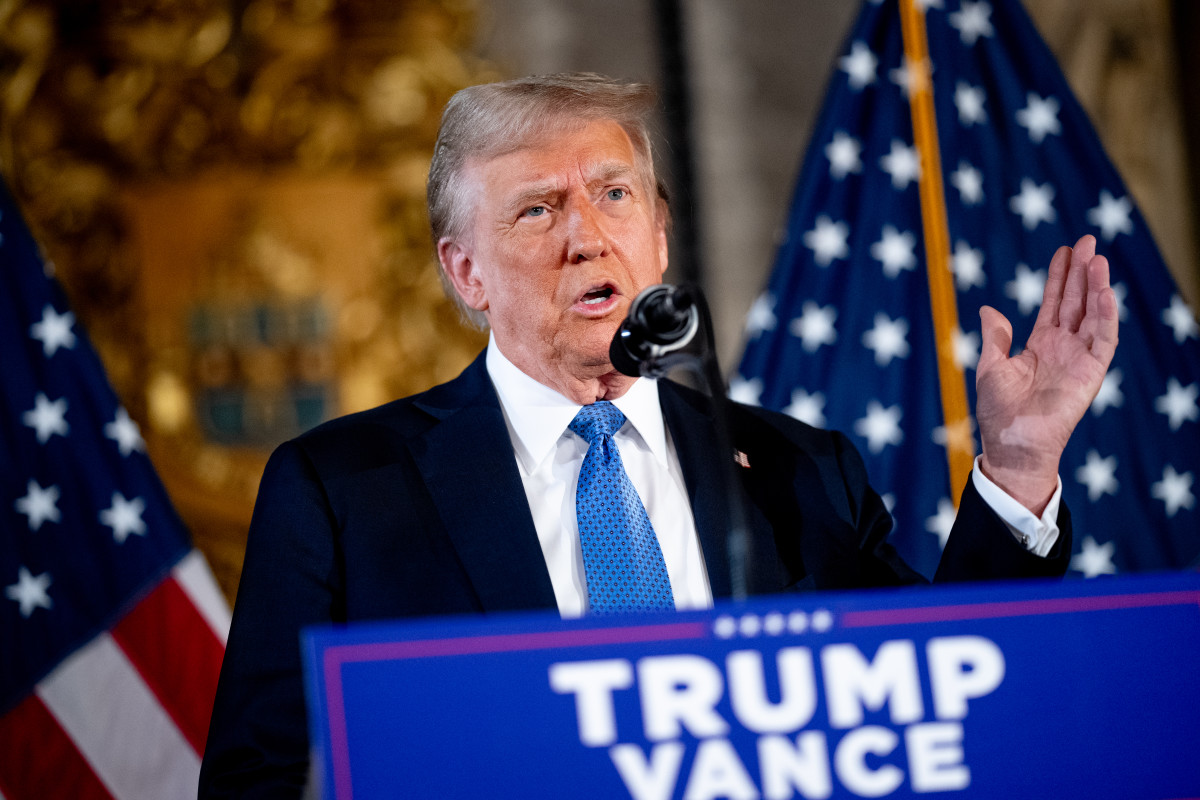
Wall Street celebrated the day after Trump was elected as president with all three major averages hitting new highs. Jeffery Hirsch, editor in chief of Stock Trader's Almanac, joined TheStreet to discuss what history suggests could lie ahead for the stock market under a Republican congress.
Related: Market risks threaten to derail Santa Claus rally
Full Video Transcript Below:
CONWAY GITTENS: So you brought up the election. We saw a huge rally in the stock market the day after one of the biggest results. Can you tell me what does history suggest could happen for the stock market over the next four years given that we have, at least for now, a Republican White House, a Republican Senate, a Republican House?
JEFFERY HIRSCH: A lot to unpack there. Well, the reason the market popped so much right after the election was that the decision was quick and decisive, which we were all fearing that there was going to be some drawn out process like we've had like we had in 2020 and in 08 and 2000. I mean, in 2000. So what history suggests is that we've got a Republican Congress which is more important than the presidency, believe it or not, in the 25 Almanac. That's all the political alignments. The best combination is Republican excuse me, Democratic president, Republican Congress. Dow averages over 17% but Republican congresses alone, 13% Dow in S&P and like 15 6 with a Republican Congress for the NASDAQ. So that's just for the post-election year. I mean, that's for all years.
Watch More Interviews:
- Ray J's blunt advice for aspiring entrepreneurs
- Dave Ramsey reveals why Americans keep spending despite economic gloom
- Remote work is stable and here to stay says ZipRecruiter economist
- Liz Ann Sonders: How to invest in AI hype without stock picking
The post-election year itself, I mentioned earlier 8% to 12% and I'm concerned with that midterm year, which is where we see bear markets, recessions and market declines in general happening. I'm looking for a new highs. I think we can get upwards of Dow 60,000 by the end of the next four years. So, I mean, we hear sometimes that the market likes gridlock. Is that true historically. I think that's a wrong it's not gridlock per se. The combination of a conservative, fiscally conservative body controlling the purse strings in Congress and a progressive, nuanced thinking in a Democratic president seems to be the best combination. It has been the best combination. We're still a little gridlock in the house. They don't have much of a margin there. I think the Conservative wing there is going to keep things in check. So it's really Republican congresses that are most important for the bull market.
CONWAY GITTENS: Now, talk to me about Trump's policies. He is very verbal, very vocal about tariffs. So what are the likely impacts on the stock market from a tariff plan?
JEFFERY HIRSCH: I mean, if he goes all out with everything, it would be expensive. I don't foresee him doing that. It's a negotiation tactic. He's the art of the deal guy. He wants to get people to the table. Some tariffs have been effective historically. I think Mr Trump has a legacy that he wants to keep up. He doesn't have to run for re-election. I think he's going to do everything in his power to preside over economic growth, a bull market and global stability. And if he just goes Willy nilly and puts tariffs on everybody out there, it's not going to achieve that. So it's going to be tactical.







